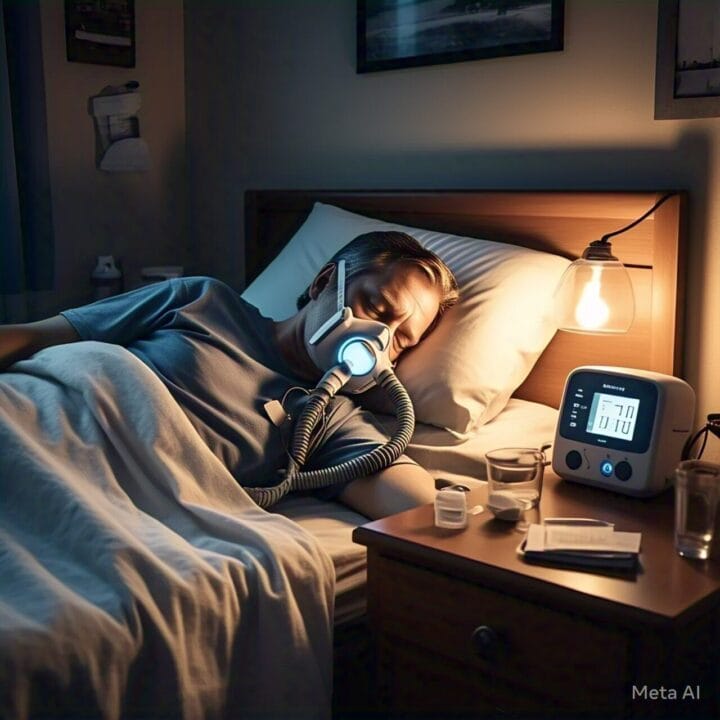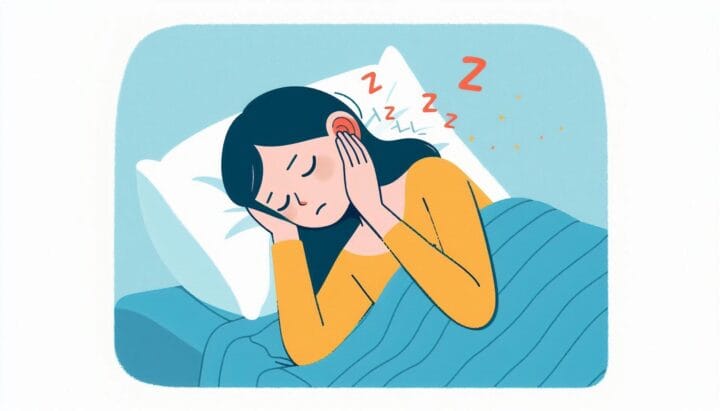Living with Idiopathic Hypersomnia: Understanding and Managing This Sleep Disorder
Table of Contents
What is Idiopathic Hypersomnia?
Idiopathic hypersomnia is a sleep disorder characterized by excessive daytime sleepiness despite having a full night of sleep. Unlike narcolepsy or other sleep disorders, idiopathic hypersomnia doesn’t have a clear cause, which makes it particularly challenging to diagnose and manage. People with idiopathic hypersomnia often struggle with fatigue that can severely impact their daily lives and overall well-being.
Symptoms of Idiopathic Hypersomnia
Recognizing the symptoms of idiopathic hypersomnia is crucial for effective management. Common symptoms include:
- Excessive Daytime Sleepiness: Feeling overwhelmingly sleepy during the day, even after a full night’s sleep.
- Prolonged Sleep Episodes: Difficulty waking up from long naps or extended sleep periods.
- Difficulty Waking Up: Experiencing sleep inertia, where it’s hard to fully wake up and feel alert.
- Memory and Cognitive Issues: Struggling with memory, concentration, and cognitive function.
If you’re experiencing these symptoms, it’s important to consult with a healthcare professional for a proper diagnosis and personalized treatment plan.
Causes of Idiopathic Hypersomnia
The exact cause of idiopathic hypersomnia remains unknown, but several factors may contribute to its development:
- Genetic Factors: There may be a genetic predisposition to the disorder.
- Neurobiological Factors: Abnormalities in brain function or neurotransmitter imbalances could play a role.
- Environmental Factors: Stressful life events or other external factors may trigger or exacerbate symptoms.
Since idiopathic hypersomnia does not have a specific cause, treatment focuses on managing symptoms and improving quality of life.
Diagnosing Idiopathic Hypersomnia
Diagnosing idiopathic hypersomnia involves a comprehensive evaluation by a sleep specialist. Here’s what you can expect:
- Medical History Review: Discuss your symptoms, sleep patterns, and overall health history.
- Sleep Studies: A polysomnography (sleep study) or multiple sleep latency test (MSLT) may be conducted to assess sleep quality and determine the extent of daytime sleepiness.
- Exclusion of Other Conditions: The diagnosis involves ruling out other sleep disorders and medical conditions that could cause similar symptoms.
Managing Idiopathic Hypersomnia
Effective management of idiopathic hypersomnia typically involves a combination of lifestyle changes, medications, and behavioral strategies:
- Medications: Stimulants and wake-promoting agents, such as modafinil or amphetamines, can help reduce daytime sleepiness.
- Sleep Hygiene: Establish a consistent sleep schedule, create a restful sleep environment, and avoid caffeine or heavy meals before bedtime.
- Cognitive Behavioral Therapy: Behavioral strategies, such as cognitive behavioral therapy for insomnia (CBT-I), can help manage symptoms and improve sleep quality.
- Lifestyle Adjustments: Incorporate regular physical activity and practice relaxation techniques to enhance overall well-being.
Tips for Living with Idiopathic Hypersomnia
Living with idiopathic hypersomnia can be challenging, but these strategies can help you manage your condition more effectively:
- Plan Your Day: Structure your daily activities to accommodate your energy levels. Schedule important tasks during your most alert times.
- Seek Support: Connect with support groups or online communities to share experiences and gain encouragement.
- Educate Yourself: Learn as much as you can about idiopathic hypersomnia to better understand your condition and explore treatment options.
- Communicate with Others: Inform family, friends, and colleagues about your condition to foster understanding and support.
Conclusion
Living with idiopathic hypersomnia presents unique challenges, but with the right strategies and support, it’s possible to manage the symptoms and lead a fulfilling life. If you suspect you have idiopathic hypersomnia, seek professional help to receive a proper diagnosis and personalized treatment plan. By understanding your condition and implementing effective management techniques, you can improve your quality of life and navigate the complexities of idiopathic hypersomnia.
If you found this information helpful, share it with others who might benefit from understanding idiopathic hypersomnia. For more insights and updates on managing sleep disorders, stay tuned to our blog.













Post Comment